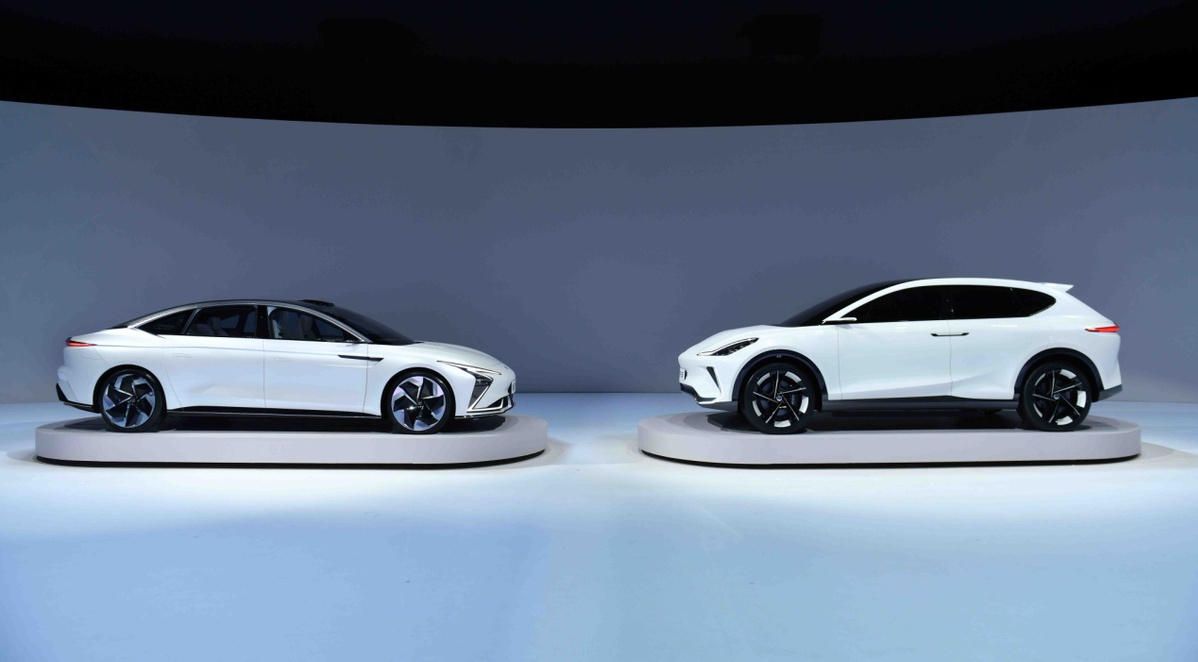SAIC and Alibaba JV unveils wireless-charging vehicles

IM Motors, a joint venture among China's SAIC Motor, e-commerce giant Alibaba and Shanghai's Zhangjiang Group, unveiled on Wednesday its first two electric models that can be charged wirelessly.
The premium marque said the vehicles, one sedan and one SUV, can see their range extended by 70 to 80 kilometers per hour via wireless charging.
IM Motors said the vehicles are built on a central architecture that integrates four domain controllers. They can be updated over the air and will feature a 39-inch display.
They have a maximum output of 400 kW and a top torque of 700 Nm, running from zero to 100 kilometers per hour in 3.9 seconds.
The vehicles will be able to park themselves automatically. IM Motors said the functions will be available by the end of 2021 in Shanghai and in other cities starting in 2022.
The models feature batteries developed in partnership with China's CATL.
IM Motors said the batteries' energy density will be 30 to 40 percent more than current ones in the market, and will be able to run for up to 1,000 kilometers on one charge.
The joint venture, with an investment of around 10 billion yuan, was established late last year.
SAIC is the largest shareholder with a 54 percent stake. Alibaba and Shanghai Zhangjiang each hold a stake of 18 percent.
IM Motors said SAIC's expertise in car production and Alibaba's advantage in big data and artificial intelligence will make its models more competitive in the market.
The carmaker said it will begin taking preorders on the sedan in April during the Shanghai auto show. The sedan will be launched later this year and delivered in 2022.
The electric SUV is scheduled to launch in 2022, the carmaker said.
IM Motors' first showroom will open around May 2021 in Shanghai, and mass production of its first model will start in the same year.
China has been the world's largest market for new energy vehicles since 2015.
Despite the hardships caused by the COVID-19 pandemic, sales of electric cars and plug-in hybrids totaled 1.37 million in China last year, up 10.9 percent year-on-year, according to the China Association of Automobile Manufacturers.

